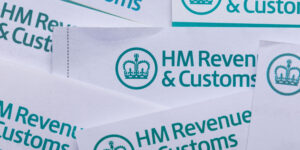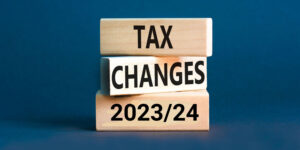If you are a director of a limited company or a sole trader and your financial situation is fairly straight forward you can most probably do your Self Assessment tax return yourself, without the need of an accountant.
This will save you money each year. However, there are occasions when having a Self Assessment accountant is useful. This article explores how much you can do yourself and when it is useful to get help from a professional.
HMRC provides helpful step-by-step instructions
Assuming you are comfortable in using a computer, you can quite easily work out what is expected of you by HMRC, with regards to your tax return, on the GOV.UK website as they provide excellent step-by-step instructions.
The tax return itself is broken down into sections and pages. Each page saves automatically and you can jump in and out of pages if you want to leave the return to find information or do some calculations.
From time to time you may get an error message but this is just a polite warning from HMRC telling you that the page is incomplete, in case you try to submit it before it has been completed.
HMRC will also give you some guidance on what they are looking for. This is currently accessed by clicking the question mark symbol next to each item.
Admittedly some questions can take a few moments to grasp what they are asking, but so long as you do not leave the tax return to the last minute, it is entirely possible to do it yourself without an accountant – or at least give it a bash.
Some added reassurance
Once you have completed (but not submitted) the tax return you can take your time to review it before filing, giving you added reassurance.
HMRC will ask you to confirm you are ready to submit, which is done by entering your Government Gateway user ID and password again. It also means it cannot be submitted accidentally.
If you do put your tax return aside to review at a later date, don’t forget to go back and file it before the deadline of 31 January. Set a personal reminder, if you need to. HMRC will consider it an unfiled return otherwise and charge you penalties and interest.
Benefits of doing your own Self Assessment tax return
The most obvious benefit of doing your own tax return is avoiding an accountant’s fee. The amount saved will vary depending on your location, type of business, bookkeeping needs, and the number of transactions in the year. But realistically you would be looking at a saving in the region of £250 to £500 per year.
Another benefit of doing your own tax return is the empowered feeling it brings. This may help you feel capable of handling your own finances and give you the confidence to try new things and grow your business.
What does a straightforward tax return look like?
An easy Self Assessment tax return would be one, where you as a director receive a salary through the business. This salary would have been processed through payroll software, either by yourself or an accountant. Other items would include some dividends, bank interest, and perhaps a benefit in kind.
The tax return would simply be the details on your P60 (the end of year salary summary) showing the gross salary you received in the tax year, and any tax paid.
The dividends would be the dividends you received in the tax year 6 April to 5 April (not your company tax year).
You can find the total bank interest you received on an annual statement from your bank each tax year. If it’s unclear, simply call your bank.
The benefit in kind value will have been calculated by your company accountant or yourself if you do your own payroll.
However, if you received additional income for example, from property rental, the sale of assets, or you were eligible for entrepreneurial relief or any other reliefs – then it would be advisable to use an accountant. This will ensure you declare the relevant information correctly and pay the right amount of tax.
Can software assist with a Self Assessment tax return?
Yes, there are several accounting systems on the market that can help you do your tax return, for example, FreeAgent and QuickBooks.
Both are priced at the average rate a Self Assessment accountant may charge annually. Although FreeAgent is free if you have a Natwest, RBS, or a Mettle bank account.
For more information on FreeAgent: https://www.freeagent.com/accountants/get-started/hmfinancecoaching/. For information on QuickBooks: https://quickbooks.intuit.com/uk/hmrc-self-assessment/
What is Making Tax Digital (MTD) for Income Tax?
HMRC announced they want to see quarterly Self Assessment tax return filing from 6 April 2026 onwards, as opposed to annually. If you rely on an accountant to help you do your tax return, their cost is likely to increase at this time. To mitigate this additional cost, it would be advised to consider looking at how to do your tax return yourself.
- How to register for Self Assessment
- The top 10 Self Assessment tax return mistakes – and how to avoid them
- How to reduce your Self Assessment payments on account
- 12 Self Assessment expenses you didn’t know you could claim
Furthermore, we also advise you to embrace cloud accounting software prior to this date. This will allow you to get to grips with the software prior to having to do quarterly tax returns.
To find out more visit: https://www.gov.uk/guidance/follow-the-rules-for-making-tax-digital-for-income-tax
The benefits of a Self Assessment accountant
Whilst you may be more than capable of doing your own Self Assessment tax return in most circumstances, there are times when an accountant will be worth their weight in gold. For example, an accountant can:
- give you advice on financial challenges you may face in your business
- help you navigate through the ‘salary versus dividend’ minefield
- bring peace of mind knowing you are doing things correctly
- check your bookkeeping, ensuring that all sales and expenditure have been identified correctly
Cloud accounting software is a great solution, but it cannot be relied upon to be accurate. Like any software, the data out (your tax return) is only as good as the data in.
If there are any errors in categorising your sales and expenses, or if your bank connection duplicates or omits data (which does happen although thankfully it is rare) then your tax return will be incorrect.
Reducing errors on Self Assessment tax returns
To help reduce any errors in your Self Assessment tax return here are some useful tips:
- check your bookkeeping software’s bank balance with your bank statements
- keep your personal bank account separate from your business bank account
- ensure all personal expenditure or cash withdrawals from the business are categorised in the software; as either drawings (if you are a sole trader) or dividends (if you are a director)
And there you have it!
In this blog we’ve discussed the question – do I need an accountant to do my Self Assessment tax return? We have found there are circumstances where you can do it yourself and save quite a bit of money in accountancy fees.
There are of course other situations where using an accountant could be very beneficial, if not necessary. You shouldn’t be afraid to give this work to an accountant if you aren’t comfortable doing it yourself, or if you have a complex return to deliver. The overarching rule of the Self Assessment tax returns is – to get it right.
Please note that the information provided in this article is for general informational purposes only and does not constitute legal, tax, or professional advice. While our aim is that the content is accurate and up to date, it should not be relied upon as a substitute for tailored advice from qualified professionals. We strongly recommend that you seek independent legal and tax advice specific to your circumstances before acting on any information contained in this article. We accept no responsibility or liability for any loss or damage that may result from your reliance on the information provided in this article. Use of the information contained in this article is entirely at your own risk.







Join The Discussion
Comments (5)
Thanks for the article! This self assessment tax return analysis will be helpful for my own professional UK accountants business.
Thank you for your kind comment David.
We are so pleased you enjoyed our recent blog.
Kind regards,
The 1st Formations Team.
Thanks for the article! Will apply these self assessment tax return tips in my own business tax services UK.
Thank you for your kind comment, David.
Kind regards,
The 1st Formations Team
Thank you for your comment, David. We’re glad you found the article useful.
Kind regards,
The 1st Formations Team